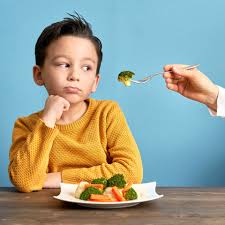
Recent studies among kids have shown that putting your child on a restrictive diet can have long-term ramifications such as future eating disorders, potential alcoholism, and obesity later in life. When you put your child in your diet, you may put him on a restrictive diet. Food restriction and dieting in childhood can contribute to a higher risk of binge eating later in life. When parents call desserts “sweets,” “treats,” or “bad food,” they unknowingly give the food “special” power. This labeling can increase a child's desire to eat more of the so-called “bad food.
Stressing dieting over healthy eating in teenagers can cause lifelong weight and diet problems that can extend for generations. Researchers polled parents who, as teenagers themselves, had been encouraged by their parents to diet, and found that not only were those parents more likely to be obese and have eating disorders, but they also were more likely to make the same mistake of stressing dieting over healthy eating with their children.
When parents talk about dieting or weight with their teenagers, this has an immediate influence on their weight and weight-related behaviors, such as engaging in unhealthier weight control behaviors.
Parent encouragement to diet not only physically and emotionally affects the person experiencing encouragement to diet but also potentially shapes the values, beliefs, and weight-related practices that [the person] engages in and/or passes on to [his/her] own family through direct communication and parental modeling.
Dieting in childhood can lead to physical problems that may prove difficult to reverse, even years later. One of the most common issues is a vitamin and nutritional deficiencies. Stunted growth, delayed puberty, and osteoporosis becomes real concerns when kids follow restrictive diets that don't meet their nutritional needs. Bones grow rapidly during childhood, for example, typically reaching peak mass by age 20. Kids who skimp on calcium are inviting brittle bones that break easily.
For children, almost every dieting approach can be problematic
-
If it supplies too few calories, even a balanced diet can stunt growth and development; for girls, that could mean delaying or temporarily stopping menstruation.
-
A diet that skimps on protein may hamper muscle growth, while too little fat can block absorption of vitamins A, D, E, and K.
-
Low-carb diets discourage foods like potatoes, which provide iron, potassium, B vitamins, and vitamin C all essential for the body to work at its maximum ability. And some studies suggest that low-carb diets may affect learning, concentration, and school performance since carbs provide energy and help people think clearly.
-
Early dieting can also promote chronic body image problems, yo-yo dieting, and eating disorders. Anorexia or bulimia can both stunt growth and cause serious illness, even death.
What's more, nutrition experts worry that restrictive or fad diets don't teach children healthy eating skills they can rely on for a lifetime. "They're not learning how to integrate healthy foods into their daily menu," Johnson says. "They're just going on a diet, and when they go off it, they're going to return to their original eating patterns."




